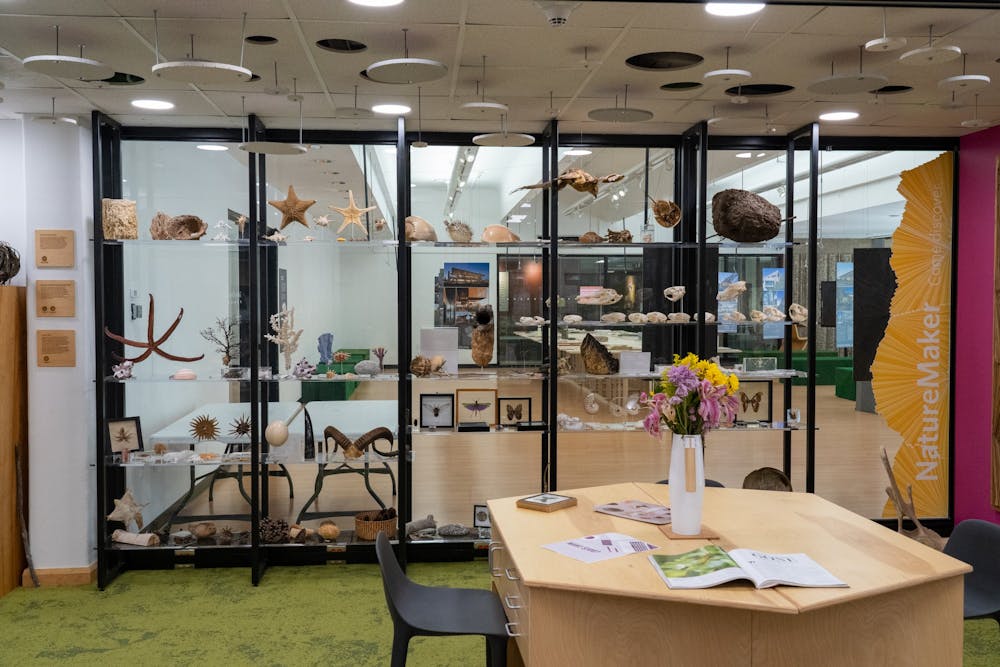ASU took a holistic approach to innovation with the addition of a NatureMaker space to the Biomimicry Center that aims to inspire students to explore nature's sustainability solutions.
The space, which launched Jan. 22, inspires students by featuring biomimicry, which uses nature to identify how organisms have solved problems. The solutions used can be applied to industries such as design, architecture and engineering.
According to the Biomimicry Center's website, spaces within the center answer the question "How would nature do this?" Examples of nature being used in human innovation include self-sharpening chainsaws inspired by beaver teeth and using natural hydrophobic materials to enhance paint.
Lily Urmann, the program coordinator of the Biomimicry Center and a masters student studying biomimicry, said nature is a talented problem solver.
"As we enter a realm of challenges for humanity, we can realize that nature has solved a lot of those challenges already," said Urmann.
The space demonstrates these problem-solving techniques by displaying artifacts like shells, butterflies and structures made out of natural materials.
Assistant director of the Biomimicry Center, Heidi Fischer said the artifacts are "meant to tap into our biophilia."
According to Encyclopedia Britannica, biophilia is the idea that humans have an innate desire to affiliate with other living organisms.
Fischer said when people interact with nature, they are more attentive. This attention to nature causes positive emotions, which helps improve the way humans connect ideas and interact with each other.
Debra Riley-Huff, director of the Design and the Arts Library, said biophilia "sparks the creative process," which is important when it comes to actually creating and exploring. She said NatureMaker offers students a chance to gather inspiration and de-stress.
"It's kind of a place to clear your head...and get into that space where you can start to think about creating," Riley-Huff said.
The NatureMaker space is one of Hayden Library's Makerspaces, which are meant to inspire collaboration and creativity in a library setting.
NatureMaker offers an opportunity to interact with nature and has the additional benefit of alleviating stress for students across all disciplines. Studies have shown that exposure to nature can improve mental health.
According to Harvard Health Publishing, a person can reduce stress, anxiety and even depression by spending more time outdoors.
In addition to positive emotions, NatureMaker staff members hope students can take time for introspection as well as inspiration.
Michelle Fehler, affiliate faculty of the Biomimicry Center, said NatureMaker will help students both reconnect with nature in the classroom and spark curiosity.
It could also raise some important questions about life and human involvement on Earth.
"Do we realize that everything we do, every decision we make, has an impact on the system around us," said Fehler, "or do we think we're in a vacuum and we're so much different than everything else?"
Correction: This story misspelled Michelle Fehler's last name in the last paragraph. It has been updated to reflect the change.
Reach the reporter at czuniga9@asu.edu and follow @celzuniga on Twitter.
Like The State Press on Facebook and follow @statepress on Twitter.




